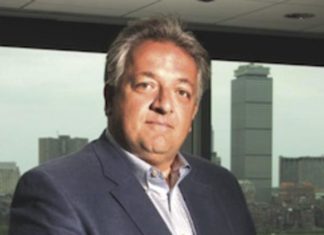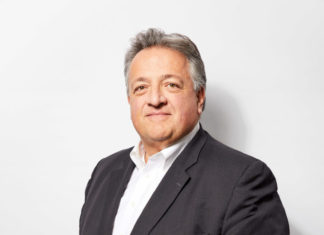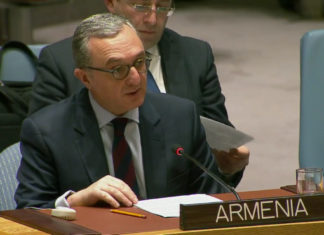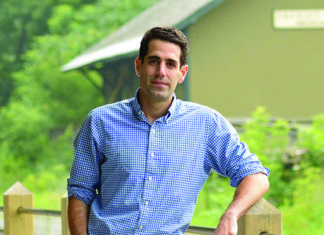By Aram Arkun
Mirror-Spectator Staff
WORCESTER, Mass. – Dr. Debórah Dwork, preparing for an upcoming conference in New York City, spoke this week about the place of the Armenian Genocide in the subfield of Genocide and Holocaust Studies, and more specifically the role of the Strassler Center for Holocaust and Genocide Studies at Worcester’s Clark University in this field. She is director of the Strassler Center and Rose Professor of Holocaust History and the author of Children with a Star (1993), A Boy in Terezin (2012), Flight from the Reich (2009) and many other books and articles.
Dwork said that the Strassler Center offers the sole university doctoral training program in Genocide and Holocaust Studies in the United States. It has already made the choice to integrate the study of the Armenian Genocide in its program with the hiring of Dr. Taner Akçam as Robert Aram and Marianne Kaloosdian and Stephen and Marian Mugar Chair in Armenian Genocide Studies.
Dwork said that in many university programs, there is a focus on one particular area of genocide studies, often organized on a geographical and national basis. There also are vested interests with external parties often focusing on individual genocides in a political way. At Clark, it is the opposite. She said, “I want the widest lens possible. I want everyone to speak in a meaningful way with their cohorts because everyone will be enriched by that shared knowledge.”
One interesting case at Clark arose simply from physical proximity. Ümit Kurt, who is working on the depredation of Armenians in his hometown of Gaziantep (Aintab), and Stefan Ionescu, who works on the depredation of Jewish property in his hometown of Bucharest, happened to sit near each other in the graduate student offices in the Strassler Center. Each one obsessed about his own project, but eventually came together to compare notes and found similar patterns as well as important differences. This interaction would not have occurred without the proximity created by the Strassler Center. The multidisciplinary and multifaceted approach at Clark has served as an example for other chairs or professorships that have been recently established elsewhere.
Dwork finds the study of the Armenian Genocide to have progressed greatly in recent years. She said, “This is a very exciting moment for Armenian Genocide studies. In my view it is poised to lay down roots in academia.” Even in Turkey it is beginning to be studied.
The fact that Clark continues to receive a large number of doctoral student applications for this field for Dwork is evidence of the vitality of the subject. It is natural that Armenians and Turks and Kurds might be interested in studying it, but recently people of all kinds of backgrounds have been applying.
Dwork believes that preparing teachers and writers is the best way to keep the Armenian Genocide important in people’s lives. She felt that other events such as the American Revolution remain pertinent due to education. She said, “I genuinely believe that the reason we care about it is that we learn it in school, and we learn about it in school because there is a constant stream of scholars who are refreshing our interpretation of events.”
Clark at present has the resources for four graduate students in Armenian studies. Every student receives full tuition support. The cost of this is over 50 thousand dollars a year per student. The late Bill Hausrath, whose wife is Armenian, endowed one graduate student fellowship for studying the Armenian Genocide. The other three fellowships are provided through five-year gifts. If Clark and the Strassler Center had more money, it could provide more fellowships and expand the number of students in Armenian Genocide studies.
Graduates from Clark could then work in academia, educational nonprofit organizations like Facing History and Ourselves, memorial museums, and nongovernmental organizations dealing with genocide. Many of the students who come to Clark are both activists and academics, but each one fits into a different place on the spectrum. Dwork said, “For me, activism and academics are mutually enriching. The scholarly questions nurture the activism. The accent of one or the other changes over the years.”
The Strassler Center encourages a certain degree of activism. For example, it has an active relationship with particular middle and high schools which integrate the study of various genocides, including the Armenian one, into their teaching. Some teachers request graduate student expertise which Strassler provides. Second year graduate student Asya Darbinyan, for example, is going to one of these schools as part of the Strassler outreach program.
Part of what the Strassler Center is doing to commemorate the centenary of the Armenian Genocide is a large four-day graduate student conference. Participants will be coming from 16 countries. As Dwork said, “Scholarship is what is key.” Again, if the Strassler Center had more money, it would also engage in more programming with lectures and symposia.
Dwork will be speaking at the Responsibility 2015 conference of the Armenian Revolutionary Federation in New York’s Marriott Marquis Hotel (responsibility2015.org) on March 14.
Bringing Worlds Together at Clark University Genocide Studies Program
Top 5 Articles
- Trending
- Most Viewed
- Most Commented
- Valerian Markarov: Writing Russian and Being Armenian in Georgia
- US and European Aid Package to Armenia Is Not Only Cheap, It’s Dangerous
- California Armenian Legislative Caucus Foundation Announces Scholarships in Remembrance of the Armenian Genocide
- Recipe Corner: Kohar Avakian’s Cherished Family Recipe for Tutum
- Recipe Corner: Zatiki Chorek: Armenian Easter Bread
- Why I Am Grateful to Erdogan, the Dictator of Turkey
- A Political Whirlwind Engulfs Nagorno Karabakh
- Libya’s Interim Government Recognizes the Armenian Genocide Once Again
- Robert Bedrosian Marries High Tech With Ancient Armenian Manuscripts
- Aleppo Aid through St. Kevork Armenian Apostolic Church of Houston








